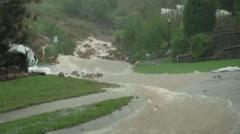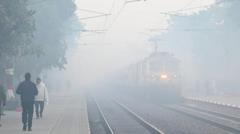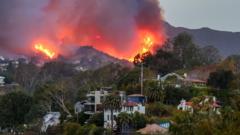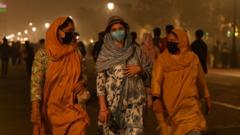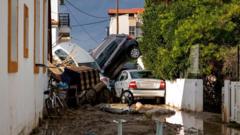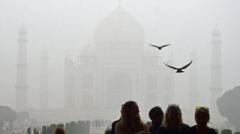New Delhi, India, is facing a dire public health crisis as smog levels reach record highs, prompting significant government responses across both India and Pakistan.
Smog Crisis Deepens: India and Pakistan Grapple with Severe Air Pollution

Smog Crisis Deepens: India and Pakistan Grapple with Severe Air Pollution
Emergency measures are in place in New Delhi and Punjab as toxic smog blankets urban areas, impacting millions.
In a worrying escalation of air quality issues, New Delhi's authorities have declared an emergency as toxic smog tightens its grip over the capital. On Sunday, schools were closed, and residents were advised to stay indoors as air quality plummeted to catastrophic levels. The air pollution index soared beyond 1,600, making it the highest in the world according to IQAir, a prominent Swiss air quality monitoring company. Readings above 301 are considered hazardous, with severe consequences for health.
Atishi Marlena, Delhi's chief minister, voiced the urgency of the situation, stating, “All of North India has been plunged into a medical emergency.” The pollution doesn’t only affect India; neighboring Pakistan has faced similar conditions, with Punjab, its largest province, already implementing restrictions such as banning outdoor events and halting classes.
Historically, late fall is marked by heavy smog due to the agricultural practice of burning leftover rice straw. However, this year’s pollution levels exceed previous records, with Punjab reporting readings above 1,000 for the first time earlier in November. In reaction, local officials in Punjab closed schools and suspended outdoor activities, warning of an alarming surge in lung-related health issues.
Delhi, too, has taken sweeping actions in response to the deteriorating conditions. Measures include shifting primary schools to online learning and temporarily halting constructions that generate dust. Diesel trucks have been banned from entering the city, and authorities have pledged to monitor the situation closely.
The culprits behind this pollution crisis vary; while much focus is placed on agricultural practices in Punjab, the effects on air quality are felt across the India-Pakistan border. Additionally, seasonal temperature drops contribute to the trapped pollutants, preventing their dispersion across the vast mountains.
With rapid adjustments being made to safeguard public health, the region faces uphill challenges. Communities are urged to remain vigilant as authorities grapple with environmental concerns that continually threaten well-being and safety.
Atishi Marlena, Delhi's chief minister, voiced the urgency of the situation, stating, “All of North India has been plunged into a medical emergency.” The pollution doesn’t only affect India; neighboring Pakistan has faced similar conditions, with Punjab, its largest province, already implementing restrictions such as banning outdoor events and halting classes.
Historically, late fall is marked by heavy smog due to the agricultural practice of burning leftover rice straw. However, this year’s pollution levels exceed previous records, with Punjab reporting readings above 1,000 for the first time earlier in November. In reaction, local officials in Punjab closed schools and suspended outdoor activities, warning of an alarming surge in lung-related health issues.
Delhi, too, has taken sweeping actions in response to the deteriorating conditions. Measures include shifting primary schools to online learning and temporarily halting constructions that generate dust. Diesel trucks have been banned from entering the city, and authorities have pledged to monitor the situation closely.
The culprits behind this pollution crisis vary; while much focus is placed on agricultural practices in Punjab, the effects on air quality are felt across the India-Pakistan border. Additionally, seasonal temperature drops contribute to the trapped pollutants, preventing their dispersion across the vast mountains.
With rapid adjustments being made to safeguard public health, the region faces uphill challenges. Communities are urged to remain vigilant as authorities grapple with environmental concerns that continually threaten well-being and safety.

